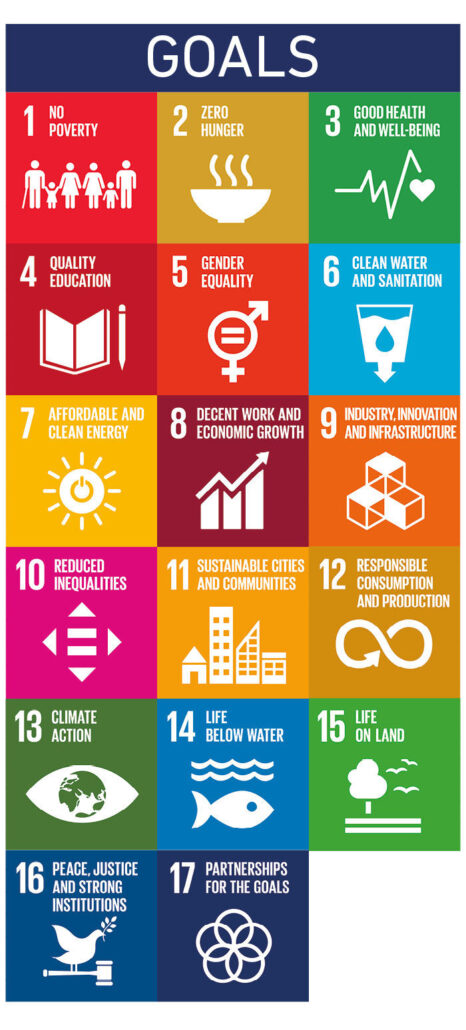In 2015, the United Nations developed a blueprint for a better and more sustainable future for humanity with the goal of solving some of the world’s greatest challenges within the next 15 years.
This blueprint is known as the Sustainable Development Goals (SDGs).
Nowadays, the SDGs are adopted by all UN member states with the aim of steering global development until 2030. The development of the goals began in 2012, when the UN member states met to create a new global agenda for sustainable development. By 2015, they established 17 goals that would address more than just poverty-related issues. These are meant to be universal, integrated and transformative.
The set of 17 goals with 169 corresponding targets is designed to overcome problems related to poverty, human development, environment and social justice.
But governments are not the only parties involved in achieving the goals. There are currently 20,614 registered SDG users worldwide and 5,250 partnerships, including businesses from all Industries and company sizes, as well as academic institutions. The Swiss bank UBS, is one of these registered users. We were interested in how they work with the goals. It appears that they are not only concentrating on one or a few goals, they include them all. UBS offers a platform for innovative entrepreneurs that are keen to make the world a better place, the so-called Global Visionaries. An exemplary result of the Global Visionaries is the Notpla Technology, it is a material made from seaweed and plants, which should replace plastic. Furthermore, UBS recently joined forces with former Global Visionary Bottletop, a British luxury brand for sustainable fashion, with whom they co-founded TOGETHERBAND. TOGETHERBAND is a visualization of the SDG’s in form of bands. These are made out of recycled ocean plastic and have a little “bottletop” to close the bands. The TOGETHERBANDs are always sold in pairs so that you can share your goal with someone close to you and spread awareness for the SDGs.
For other participants the focus is on a few goals in particular. ConnectUS decided to build this year’s project “Sustain and Gain” centered on the SDGs No. 7 Affordable and Clean Energy, No. 8 Decent Work and Economic Growth and No. 12 Responsible Consumption and Production.
Ensuring access to affordable, reliable, sustainable and modern energy for all is the guiding theme for Goal No. 7. The improvement of renewable energy and overall efficiency is at the core of this goal, and relevant innovations are continuously being researched and developed.
The selected Goal No. 8 comprises diversification, sustainable employment practices, technological upgrading and innovation that can help raise the level of economic productivity to create sustainable economic growth.
The current world population is now consuming more resources than the ecosystems can provide. Sustainable practices for the use and management of natural resources are studied by convincing involved parties to achieve the goals of Goal No. 12.
Businesses, governmental and academic institutions can apply different approaches to meet these goals, all of which provide an interesting subject for discussion. Sustain and Gain is based on the premise that the necessary knowledge is available and that all parties involved can learn from different perspectives. The project seeks to deepen the participants’ knowledge on approaches to efficient energy procurement, decent work practices and reduction of wasteful production.
To achieve the respective goals, involved parties can use different approaches. These form the basis for the topic discussions throughout the whole project, including the preparatory seminar and the on-site seminar. ConnectUs strives to create a common basis for interesting contributions that will support the achievement of the SDGs. After all, the knowledge is out there, it just needs to be connected.

“Alexandra Bosshard is currently working as an intern in Brand Management at UBS, but this letter is written in her personal capacity and does not represent the views of UBS.”